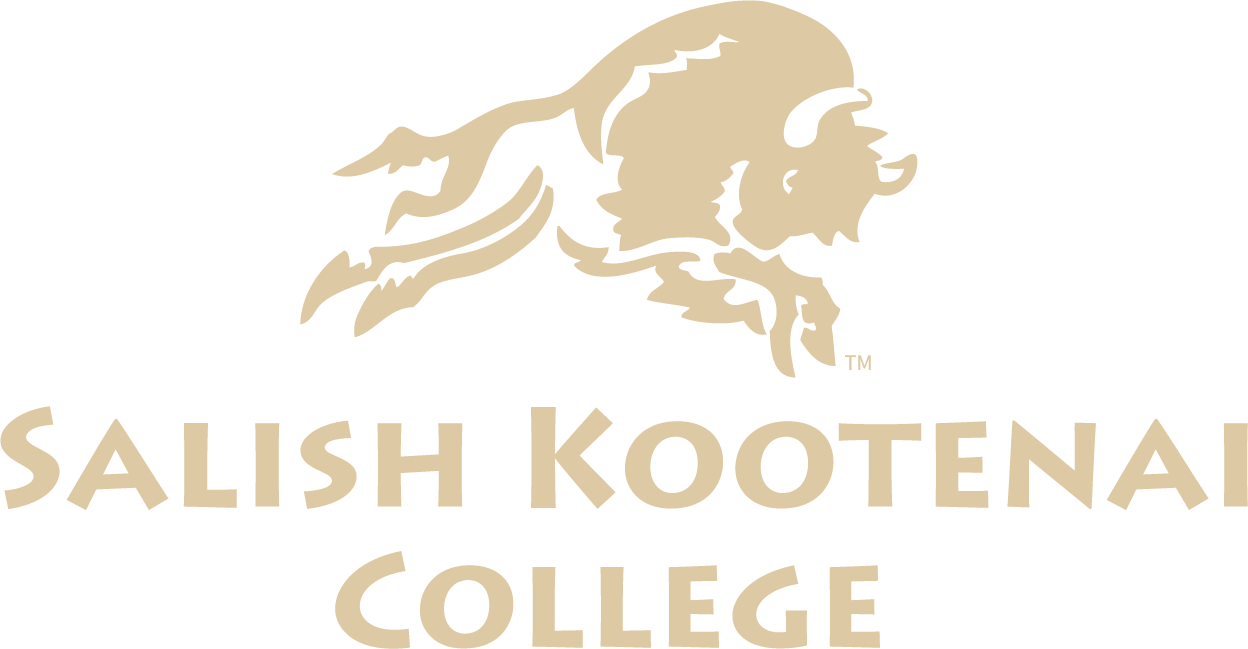The Allied Health Department prepares individuals for careers in vocational or technical education. Department offerings include the Medical Assistant Certificate (MAC) and a stand-alone course in Phlebotomy.
In just 10-months, students will gain the essential knowledge, hands-on skills, and professional behaviors to excel as a vital member of any medical team. Students enter the program in the fall and complete in the month of June the following spring.
Medical Assisting’s competency-based curriculum covers everything from medical terminology and clinical procedures to administrative tasks and legal considerations, ensuring you're well-prepared for the demands of the field. You'll learn from experienced instructors and gain real-world experience through a 160-hour supervised practicum in a healthcare setting.
Our program goes beyond the classroom, providing you with the confidence and expertise needed to succeed. We're proud of our 100% first time pass rate on the National Healthcareer Association Certified Clinical Medical Assistant (CCMA) exam, demonstrating the quality of our training. Join our program and take the first step towards a rewarding career in healthcare
The Allied Health Department also offers a 5-credit phlebotomy course. The course is offered winter quarter beginning with the 2025-2026 academic year. In some instances, a second offering of the phlebotomy course occurs during the summer months. Interested students are required to submit a complete phlebotomy application to be considered for course admission as seats in the course are limited. Successful completers earn eligibility to sit for the National Healthcareer Association Certified Phlebotomy Technician (CPT) exam, which is the final requirement of the course.
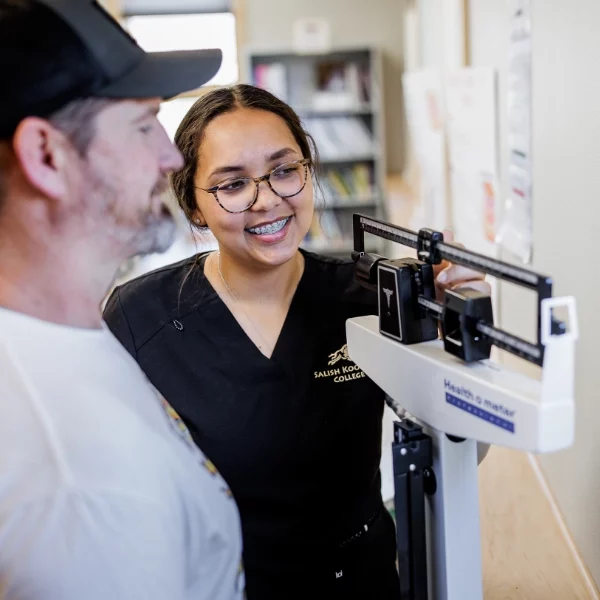
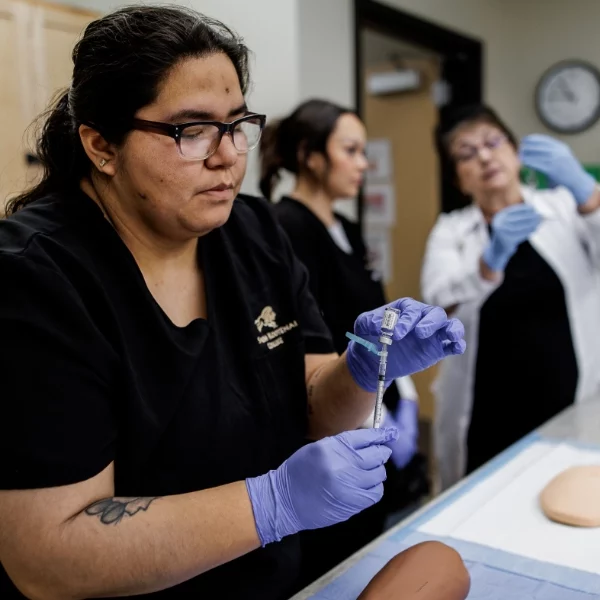
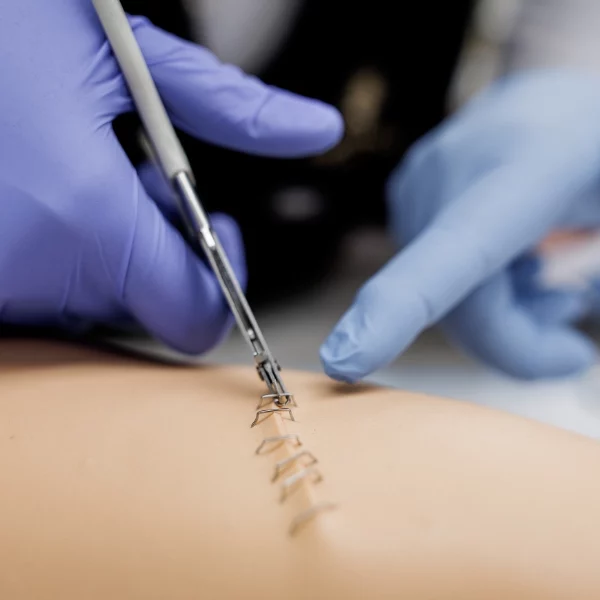
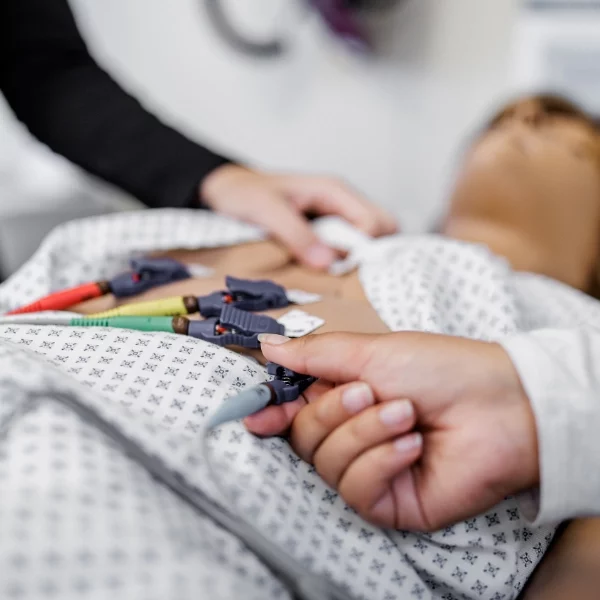
Programs in this Department
CC Medical Assisting
The Medical Assistant Certificate of Completion (C.C.) is a 10-month preparatory program that provides a competency-based learning approach to prepare medical assistants who are competent in the cognitive (knowledge), psychomotor (skills), and affective (behavior) learning domains to enter the profession. Students learn to perform medical office administrative duties such as scheduling and receiving patients, handling telephone calls, preparing and maintaining electronic health records, managing practice finances, developing effective written, oral and interpersonal-communication skills, and performing within the legal and ethical scope of practice for a medical assistant.
Building on program courses which provide base knowledge of medical terminology, human body systems, human health and disease, commonly prescribed pharmaceutical drugs, and cultural diversity, the medical assistant student learns hands-on application of various clinical duties. Under the supervision and direction of a physician, the medical assistant's clinical duties include asepsis and infection control, measuring and recording vital signs, receiving and documenting patient histories, specimen collections to include venipuncture and capillary sticks, CLIA-waived testing, electrocardiography, medication preparation and administration, patient education and assisting the healthcare provider with examinations and treatments.
In addition to spring quarter courses, medical assistant students complete the minimum requirement of 160 supervised hours in a medical office administrative practicum setting, as well as a medical office clinical setting while under the supervision of a physician. The practicum provides an opportunity for medical assistant students to perform procedures and skills they learned throughout the medical assistant certificate program. Upon successful completion of the required practicum hours, the medical assistant student becomes eligible, and is required to sit for the credentialing examination. Completion of practicum hours and preparation for the credentialing examination occur throughout the month of June.
The goal of the Medical Assistant Program is to prepare medical assistants who are competent in the cognitive (knowledge), psychomotor (skills), and affective (behavior) learning domains to enter the profession.
According to the United States Bureau of Labor Statistics employment of Medical Assistants is projected to grow 15 percent from 2023-2033. Medical Assistant is currently one of the fastest growing professions. As a result, physicians will hire more medical assistants to perform routine administrative and clinical duties, allowing the physicians to see more patients.
The U.S. Bureau of Labor Statistics (2023), reports the median annual Medical Assistant salary is $42,000 or $20.19 per hour. However, salaries can vary widely depending on a variety of factors such as location and type of health care facility.
- To prepare students to sit for the National Healthcareer Association Certified Clinical Medical (NHA CCMA) examination.
- To provide medical assistant students an optional phlebotomy course for those interested in sitting for NHA's Certified Phlebotomy Technician (CPT) examination.
- Qualify for employment in the healthcare field.
Upon completion of the Medical Assistant Certificate of Completion, students will be able to:
- Apply critical thinking and problem-solving skills in a healthcare setting.
- Display professionalism and respect for diversity in relation to culture, age, and gender.
- Perform within the legal and ethical scope of practice in the role of a Medical Assistant.
- Demonstrate professional and effective forms of communication with patients, families and other healthcare professionals in culturally diverse communities.
- Demonstrate proficiency in the administrative and clinical competencies that are required in the role of a Medical Assistant.
Requirements Specific to the Medical Assistant Certificate
Physical Demands: The industry standards for a Medical Assistant are to have a full range of motion. This includes handling and lifting patients, stooping or stretching and hand-eye coordination. The job will require a Medical Assistant to stand 8-10 hours a day with occasional sitting.MA students must be able to carry 40-50 pounds.
All students are required to have a complete federal background check done prior to the end of the fall term. Failure to pass the federal background check may result in the student's inability to progress in the medical assistant program.
Note: Students with a history of criminal convictions (whether felony or misdemeanor) relating to crimes such as, but not limited to, physical assault, use of a dangerous weapon, sexual abuse or assault, abuse of children, the elderly or infirm and crimes against property, including robbery, burglary and felony theft, may not be eligible for employment in a healthcare facility as a medical assistant. Students with concerns in this area should consult with the program director.
Computer Skills: The program requires students to have knowledge of basic computer terms and to be able to demonstrate basic computer skills. Throughout the medical assistant program, students are required to learn and use various software programs such as the college's learning management system (LMS) and program learning platforms. In addition, placement at a practicum site further requires students to learn, and safely use, electronic health records and scheduling software. Successful completion of SKC's CAPP104 Computer Literacy for Allied Health is recommended for individuals who are interested in the medical assisting program but have not yet acquired basic computer skills.
Certification Information: The Salish Kootenai College Medical Assistant Certificate of Completion program prepares students to sit for the National Healthcareer Association's Certified Clinical Medical Assistant examination. Sitting for the CCMA exam is a program requirement. 2017-2023 NHA CCMA exam pass rate is100%. The SKC MA CC program conforms to requirements in Montana. The College has not determined whether the program meets specific certification requirements in other states. Students planning to work as a CCMA in another state should consult that state’s requirements.
Service Learning: Students will complete 30 hours of service learning over the length of the program
Admission Requirements
Program admission occurs fall quarter only.
Completion of a college level math or English course, or an appropriate score on SKC's Math and English Placement Assessment: DVSP081 Academic Literacy or higher, and MATH100 College Algebra or, MATH103Contemporary Math or higher.
Program Fees: In addition to SKC tuition and fees, all students have additional costs to include purchase of required course materials, fees for a federal background check, healthcare certification fees (Bloodborne Pathogens, CPR/First Aid, HIPAA, HIV/AIDS Awareness), credentialing exam prep materials, credentialing exam fees, student liability insurance, personal healthcare coverage, practicum uniform requirements, practicum travel expense, and costs associated with updating required vaccinations for the purpose of providing the required documentation to a practicum site(s).
Competency Sign-Off: students are required to attend scheduled skills labs and pass all competency sign-offs with an 80% or higher. They are further required to maintain a course average of 70% or higher in order to attend the required course practicum for the purpose of performing live venipuncture and capillary sticks on live individuals.
Practicum: Medical assistant students must take all courses consecutively starting fall quarter. The only exception is NASD101 History of the Indians in the U.S. which can be completed prior to student beginning the MA program, or completed any quarter while enrolled in the program.
All MA students are required to successfully complete a minimum of 160 combined hours of administrative and clinical practicum prior to program completion.
Vaccination Requirements: healthcare practicum sites require medical assistant students to provide documentation of up-to-date vaccinations as part of their student learner onboarding paperwork. Medical assisting students are required to provide practicum sites with up-to-date documentation of immunizations which may include a seasonal influenza vaccine, two doses of the varicella vaccine or a positive varicella titer, two doses of measles, mumps, rubella (MMR) or a positive titer, three doses of the Hepatitis B vaccination series or a positive or reactive anti-HBs (or HBsAB) test result, an up-to-date Tdap, two negative TB skin tests or a QuantiFERON-TB Gold test and in some cases, documentation of the Covid vaccination series. In some instances, at some practicum sites, students are able to fill out a declination form for the covid vaccination and submit it to the practicum site for their approval. Additional documentation of vaccinations beyond those listed above may be required by a practicum site per that site's facility policies.
Any changes in conviction record and/or pending criminal charges which occur between the initial completion of the criminal background/registered sexual offender check and program completion must be provided in writing to the program director within ten working days from the date of notification. Failure to provide such information within the required time frame may result in immediate dismissal from the program.
Students who are not in compliance with the Student Code of Conduct provided in the SKC Catalog and/or the SKC Medical Assistant Student Handbook may place themselves at risk for dismissal from the Medical Assistant program.
Program Contacts
Valerie Johnson
Department Chair
valerie_johnson@skc.edu
406-275-4847
Health Sciences Bldg,
Allied Health wing
Christina Tryon
CMA Instructor
christina_tryon@skc.edu
406-275-4932
Health Sciences Bldg,
Allied Health wing
ALLH175 PHLEBOTOMY - Course
Phlebotomy consists of lecture, on campus lab practice hours, and off campus externship site practice. Course content includes anatomy and physiology of the circulatory system, related medical terminology, anatomical site selection, HIPAA and other legal considerations, use of blood collection equipment, order of draw and techniques on how to approach difficult draws and/or patients. Course content also includes infection control and laboratory safety, functions of the medical laboratory, patient identification and preparation for blood draws. Cultural awareness and consideration of patients is emphasized. Students will be eligible to sit for the NHA CPT Certification exam following successful completion of the course.
CREDITS: 5
OFFERED: Winter Quarter
- Demonstrate knowledge of the health care delivery system and medical terminology
- Define quality assurance and legal issues related to phlebotomy.
- Demonstrate knowledge of infection control and safety relating to phlebotomy
- Demonstrate basic understanding of the anatomy and physiology of body systems and anatomic terminology in order to relate major areas of the clinical laboratory to general pathologic conditions associated with the body systems.
- Demonstrate understanding of the importance of specimen collection and specimen integrity in the delivery of patient care.
- Demonstrate knowledge of collection equipment, various types of additives used, special precautions necessary and substances that can interfere in clinical analysis of blood constituents.
- Follow Standard operating procedures to collect specimens.
- Demonstrate a successful venipuncture on mannequin arm
- Demonstrate understanding of requisitioning, specimen transport, and specimen processing.
- Demonstrate a minimum of 30 venipunctures and 10 capillary sticks on live individuals in clinical externship sites.
Requirements Specific to the Phlebotomy Course
Phlebotomy Application:
Seating in the phlebotomy course is limited. Submission of a complete phlebotomy application and instructor permission are required to enroll in the phlebotomy course. Submission of a complete phlebotomy application does not guarantee admission to the course. The phlebotomy application is released by the Allied Health Department in the first few weeks of term previous to the term the course is offered. The application and required documentation are typically due in the last few weeks of the term it was released.
Federal Background Checks: all students are required to complete a federal background check at the beginning of the term the course is offered. Failure to pass the federal background check may result in the student's inability to progress in the course.
Note: Students with a history of criminal convictions (whether felony or misdemeanor) relating to crimes such as, but not limited to, physical assault, use of a dangerous weapon, sexual abuse or assault, abuse of children, the elderly or infirm and crimes against property, including robbery, burglary and felony theft, may not be eligible for employment in a healthcare facility as a phlebotomist. Students with concerns in this area should consult with the instructor.
Any changes in conviction record and/or pending criminal charges which occur between the initial completion of the criminal background/registered sexual offender check and course completion must be provided in writing to the instructor within ten working days from the date of notification. Failure to provide such information within the required time frame may result in immediate dismissal from the course.
Computer Skills: The course requires students to have knowledge of basic computer terms and to be able to demonstrate basic computer skills. Phlebotomy students are required to learn and use various software programs such as the college's learning management system (LMS) and course learning platforms such as Cengage MindTap.
Additional Fees: In addition to SKC tuition and fees, all students have additional costs to include purchase of required course materials, fees for a federal background check, healthcare certification fees (Bloodborne Pathogens, HIPAA), credentialing exam prep materials, credentialing exam fees, proof of personal healthcare coverage, practicum uniform requirements, practicum travel expense, and costs associated with updating required vaccinations for practicum sites.
Vaccination Requirements: healthcare practicum sites require phlebotomy students to provide documentation of up-to-date vaccinations as part of their student learner onboarding paperwork. This includes up-to-date documentation of immunizations a seasonal influenza vaccine, two doses of the varicella vaccine or a positive varicella titer, two doses of measles, mumps, rubella (MMR) or a positive titer, three doses of the Hepatitis B vaccination series or a positive or reactive anti-HBs (or HBsAB) test result, an up-to-date Tdap, two negative TB skin tests or a QuantiFERON-TB Gold test and in some cases, documentation of the Covid vaccination series. In some instances, at some practicum sites, students are able to fill out a declination form for the covid vaccination and submit it to the practicum site for their approval. Additional documentation of vaccinations beyond those listed above may be required by a practicum site per that site's facility policies.
Practicum: Students attend clinical practicum at St. Luke’s hospital laboratory. Eligibility to attend the clinical practicum site requires:
- students to attend at all practice labs
- student submission of all requested immunization documents.
- an overall course grade average of 70% or higher
- a passing score on all competencies
- Student to be at the practicum site and ready to go by 6 am. Students are typically able to complete practicum site requirements within a week in which those most often attend half days.
NHA’s Practice Exams (6 total, 100 questions each) are required for student preparation for NHA’s CPT credentialing exam. Completion of the practice- and credentialling exam (s) are graded items in the course.
Credentialing Exam: The ALLH175 Phlebotomy course prepares students to sit for the National Healthcareer Association's Certified Phlebotomy Technician examination. Eligibility to sit for the NHA CPT exam and earning the CPT credential also requires students to:
- successfully pass their venipuncture and capillary stick competencies.
- successfully pass the phlebotomy course with a 70% or higher.
- complete a minimum of 30 successful venipunctures and 10 capillary sticks on live individuals while at the practicum site. This is followed by submission of signed & verified documentation of the required venipunctures and capillary sticks to the instructor, prior to the student’s scheduled credentialling exam.
- Pass the NHA CPT exam
The College has not determined whether the course meets specific certification requirements in other states. Students planning to work as a CPT in another state should consult that state’s requirements.
Student Code of Conduct: students who are not in compliance with the Student Code of Conduct provided in the SKC Catalog place themselves at risk for dismissal from the course.
Program Contacts
Valerie Johnson
Department Chair
valerie_johnson@skc.edu
406-275-4847
Health Sciences Bldg,
Allied Health wing
Apply now and enjoy a unique educational experience that blends Western academic knowledge with Native American perspectives and practices. Benefit from smaller class sizes, personalized attention, and opportunities for hands-on learning and research. Join a supportive community that values cultural diversity and academic excellence, and prepare for a successful career and leadership role in your community. Apply today and start your journey towards a brighter future at SKC!
